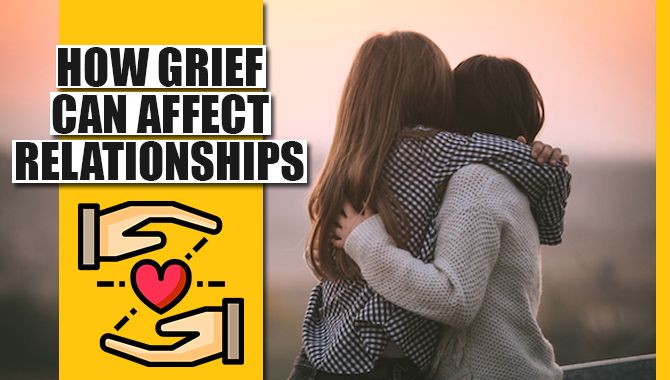Everyone grieves in their unique way, but the effects of grief on intimacy vary. This blog explores how grief affects intimacy and how to deal with those effects.
It covers topics like grieving the loss of a loved one, struggling to cope with the emotions associated with the death, and rebuilding intimacy after a loss.
Whether you’re currently going through a loss or have gone through it in the past, this blog is sure to offer helpful insights and advice. So read on and discover how grief affects intimacy in the most impactful way possible.
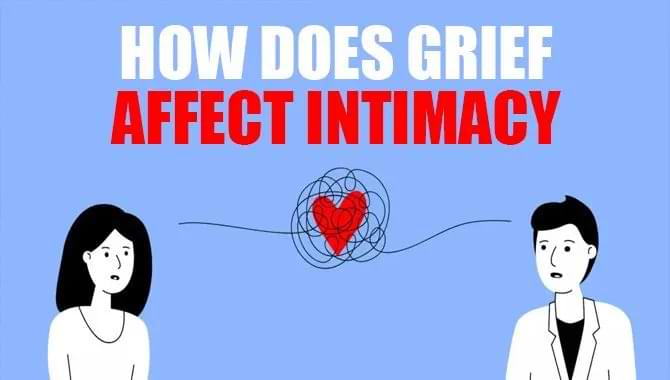
Grief Affects Intimacy In Different Ways
Intimacy is an important part of any relationship, and loss can significantly impact it. Grief affects intimacy in different ways, depending on the individual. Some people may withdraw or become more guarded around those they care about.
Others may find that intimacy does not return to pre-grieving levels for some time after the loss occurs.
It’s important to be patient and allow yourself time to heal to rebuild intimacy later on. This process can be challenging, but it can be a rewarding journey with the right tools and support.
Individuals Grieve Differently

There is no one right way to grieve – everyone grieves in their unique way. However, some general guidelines can help you cope with the loss of a loved one in the best possible way.
Some people may feel shy and uncomfortable around others. Others might not show much emotion or exhibit outward signs of grieving, such as talking about the deceased often, wearing black clothing after the funeral, etc.
It is also common for people to experience flashbacks or nightmares after losing someone close to them.
Do not hesitate to speak about your feelings with your loved ones; they will understand better than anyone else what you’re going through at this difficult time.
Intimacy Is Not The Same For Everyone After A Loss

After a loss, some people may experience a decrease in intimacy. This could manifest itself as difficulty trusting others or emotional detachment from them.
In some cases, sex might also become difficult for the couple to enjoy due to heightened anxiety and stress levels.
It is important to be patient and understanding with your partner, as it can take time for all these effects to adjust. You must give your partner the space they need to process their feelings appropriately.
There Are Stages Of Grief – Denial, Anger, Bargaining, Depression, And Acceptance
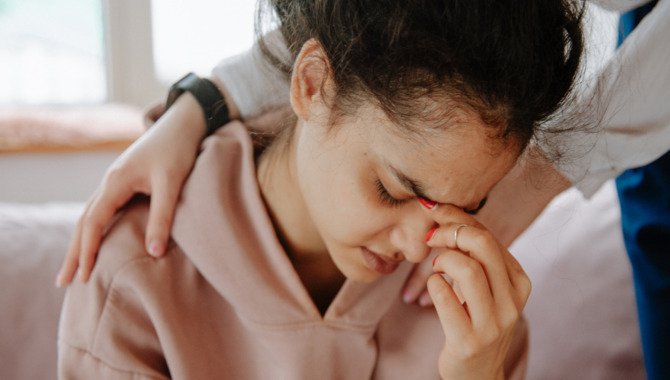
There are stages of grief – denial, anger, bargaining, depression and acceptance. The grieving process can be difficult, but it is important to remember that everyone experiences it differently.
At the beginning of grief, people may try to deny that their loved one is gone. They may also feel angry and resentful towards them for leaving them.
In this stage, people often bargain with God or the universe, hoping their loved one will return home. After going through all these stages, most people reach a point where they accept their loss and move on with their life.
Grief Can Change Your Relationship With Loved Ones

When a loved one dies, the grieving process is inevitable. Grief can cause you to withdraw from relationships and become reclusive. You may find it difficult to express your feelings openly, and intimacy may decrease.
It’s important not to dwell on the loss of the person but focus on rebuilding healthy connections with those around you. Remember that grief doesn’t mean the end of your relationship it might even help strengthen it.
It Can Make You Reclusive

Grief is a natural and necessary process that helps us deal with losing a loved one. However, grieving can sometimes make us isolate ourselves from friends and family. This may cause problems in our social life, as well as our emotional life.
It is important to allow yourself time to heal after losing a loved one. Doing this involves expressing your feelings, revisiting memories together, rebuilding intimacy in your relationship and engaging in activities that bring you joy.
There are many ways to do this – some involve therapy or journaling while others require simply spending time with those who mean the most to you.
It Can Lead To Detachment From Others

Grief can lead to detachment from others as it can be difficult to open up about your feelings. This detachedness may make it hard for you to build strong relationships in the future, as you are not likely to share personal details with people close to you.
It is important to remember that intimacy takes time and patience to rebuild. It might take some time before things return back to the way they were before the loss happened.
However, remember that grieving is a natural process and should be respected – even if things seem tough at first glance.
It May Disrupt Your Sleep Patterns

Given the fact that grief can affect your ability to sleep soundly and effectively, it is important to take things slow when grieving. It’s also crucial not to hurry through the process or worry about making mistakes.
Give yourself time and space so you can grieve in an emotionally safe environment. Adjusting your bedtime routine may help you get a better night’s rest when it comes to sleeping.
Grief Can Cause A Loss Of Intimacy With Others
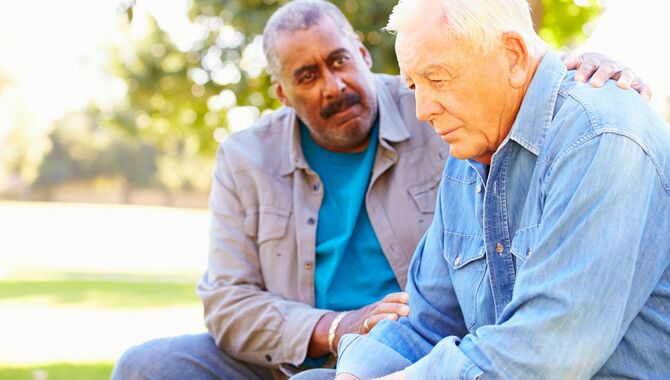
Grief can cause a loss of intimacy with others because it changes our mood and emotions. In addition, grieving often means re-evaluating many aspects of life – from relationships to daily routines.
It can be difficult for those closest to us to understand what we’re going through, making it feel like we are alone in this process.
However, by being open and honest about how we’re feeling, they can provide emotional support that helps us during these tough times.
How Do We Heal From Grief
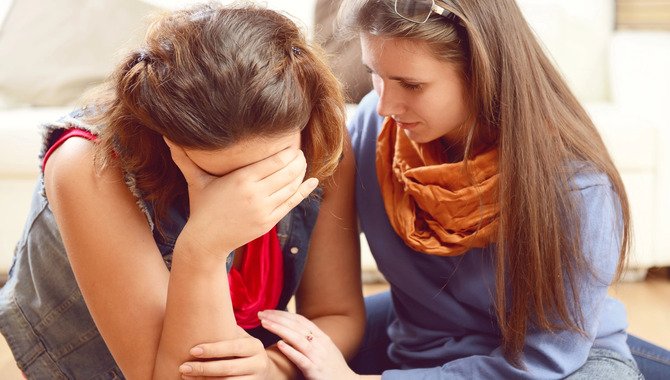
Grief is a natural response to the death of a loved one, and it can profoundly affect our intimacy. It can affect our physical, mental, and emotional health in several ways.
It’s important to talk about how we’re feeling with those closest to us, and to seek out professional help if we feel that the grief is overwhelming us.
Sometimes it’s helpful to write down our thoughts and feelings to keep them focused. Friends and family are always there to support us during this difficult time.
Understand The Stages Of Grief

It can be difficult to adjust to the loss of a loved one, whether that person is deceased or gone for an extended period. Often, these feelings will progress through different stages: denial, anger, bargaining, and depression.
If you are experiencing any of these emotions, you must understand that they are all normal and completely natural. It is also helpful to talk about your feelings with someone else who has experienced the same thing.
Let Go Of What’s Not Important

Grief is an unavoidable part of the grieving process and it’s natural to feel overwhelmed by its intensity at times. However, it is important to remember that we are not alone on this journey. Many people have gone through a similar experience and can offer support during tough times.
Expressing ourselves in whatever feels right helps us cope with our emotions – even if that means writing, painting, or singing lyrics from favorite songs. It’s also important to find ways to have fun again – something which might seem impossible but eventually happens when we let go of the past and focus on the present instead.
Seek Support From Those You Trust

Grieving is a process that we all go through in life. It’s natural to feel sad and cry, but it’s important to remember that this is a necessary step in the healing process.
Talking about your feelings with those you trust can be helpful – they will understand what you are going through better than anyone else. And if they don’t have any experience with grieving.
Express Your Feelings In A Constructive Way
Talking about your feelings is one of the most important steps in the grieving process. It can help you to understand and cope with the loss in a better way.
However, don’t be afraid to express yourself – it’s natural to feel sad and lost after a loss. Grieving takes time, but eventually, it will end, and you’ll start feeling happier again.
Many people can assist in your healing journey – talk to your loved ones, friends, or counselors for guidance and support. You’re not alone on this tough road – there are plenty of resources out there that can offer solace during these difficult times.
Know That Healing Takes Time

There is no one-size-fits-all answer to the question of how long it will take for you to heal from a loss. Each person grieves in their way and at their own pace.
While there are many helpful tips, remember that grieving is a natural process and it’s okay if you don’t feel like moving on immediately after your loved one passes away. It may help to talk about your feelings with someone or read about others’ experiences online.
Conclusion
Intimacy is one of the most important aspects of a healthy relationship. When one person in a relationship experiences grief, the intimacy of the relationship can be affected in different ways.
Grief can make the survivor feel isolated and lonely, which can impact the intimacy of the relationship.
However, with the right support, they can restore intimacy, and the couple can heal from their loss. Read more about the effects of grief on intimacy in the comments below.
Frequently Asked Questions
1. What Are Some Common Signs That Someone Is Grieving?
When someone is grieving, they may experience changes in cognition, moods, sleep patterns, and appetite.
Grieving can cause a person to feel isolated and alone, making it difficult to express themselves or connect with others.
2. How Can I Best Help My Partner Through Their Grief Process?
When it comes to grieving, many people find it helpful to talk about their feelings with their partner. This can help both of you process the loss together constructively. It can also be helpful for your partner to feel understood and loved during this difficult time.
3. Can We Ever Get Over Our Loss Completely?
Yes, we can get over our loss completely. Grief is a natural process that leads to sadness and healing. It’s important to remember that grief does not mean you are alone in your journey – many people have gone through the same thing.
4. What Are The Benefits Of Intimacy For Individuals Who Are Grieving?
It can be extremely difficult to cope with the loss when someone dies. Grief is a natural process that allows us to process the loss and move on.
Intimacy is an essential part of human social life and is important for the grieving process. Intimacy helps us to relieve stress, build self-confidence, and strengthen relationships.
5. Is It Okay To Talk About Our Grief With Others?
Talking about our grief is always therapeutic, and sharing our feelings with others can be helpful. Not only will this allow us to process and deal with the emotions that come with grieving, but it will also allow others to support us in our healing time.

